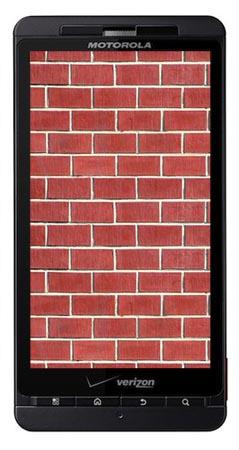
A hot item as of late has been whether or not customers should have the right to do what they please with their devices after purchase. Manufacturers like HTC, Motorola, and Samsung, aren't exactly supportive of rooting your Android device or loading custom software. Apple is relentless when it comes to preventing jailbreaks and shutting down Cydia for good. Unfortunately, this issue isn't constrained to mobile either. Even Sony has been adamant about putting an end to Geohot's hacking of the PS3.
The question is simple. Why? What is it about users doing what they please with their devices that sets these companies off? If anything, you would expect them to embrace users that void their warranties. Very rarely does any of this software damage a device, but if any evidence of root access or jailbreaking is found, the warranty is null and void. That means the manufacturer's hands are cleansed of yet another user. This would lead you to believe that they would rather it be easier for the user to achieve this.
However, this is not the case. Some companies, Motorola for one, have gone to great lengths to prevent you from doing this. Back before the Droid X's launch there was quite a bit of talk about Motorola's eFuse software. This was speculated to kick into effect when the bootloader was tampered with or an unsigned version of software – a custom ROM – was loaded on the device. The device would be rendered useless (bricked) until signed software was reloaded. A day or so before the device's launch, Motorola spoke up and denied eFuse's existence. Whether it was an improper codename or the explanation wasn't exact, the bootloader was still locked down.
Motorola made it extra difficult – for some – to do what they wanted in terms of software and loading ROMs. Some developers got smart about this though, and an application named Droid X Recovery Bootstrap (by Koush) popped up in Android Market. This application hijacked parts of the boot process and fooled the system into thinking everything was okay. In other words, it was a workaround for Motorola's sneaky and unwelcome software. Point being, no matter how hard a company works to prevent users from loading ROMs on their Android devices or jailbreaking their iPhones, developers find a way around it. Every time. Most people are fond of Motorola's nice build quality, but not everyone is a fan of MOTOBLUR; the same could be said of HTC and Sense UI. So why not give users a choice or at least assist them in making their phone what they want it to be?
The funny thing is, Google encourages this with their operating system and wants manufacturers to as well. While Apple isn't so welcoming to modified software and developers tampering with their bootloader, Google is cheering devs on and patting them on the back. Considering Android is open source, manufacturers locking down devices sort of defeats the purpose, don't you think?
Once you cash out the money for whatever device you buy, it is yours. You own it. Think of it as a computer. If you want to load a version of Linux on your computer beside OSX or Windows, nobody is stopping you. HP, Toshiba, Acer, etc. are usually out of the picture by the time you finish swiping your card. Buying a phone should be no different.
Developers aren't going away, especially with open source software – it's like a playground to them. Manufacturer's attempts, realistically, are futile. Should Motorola and Apple just give up? Do you think they eventually will? Do you feel you should be free to do whatever you want (within reason) with your phone?